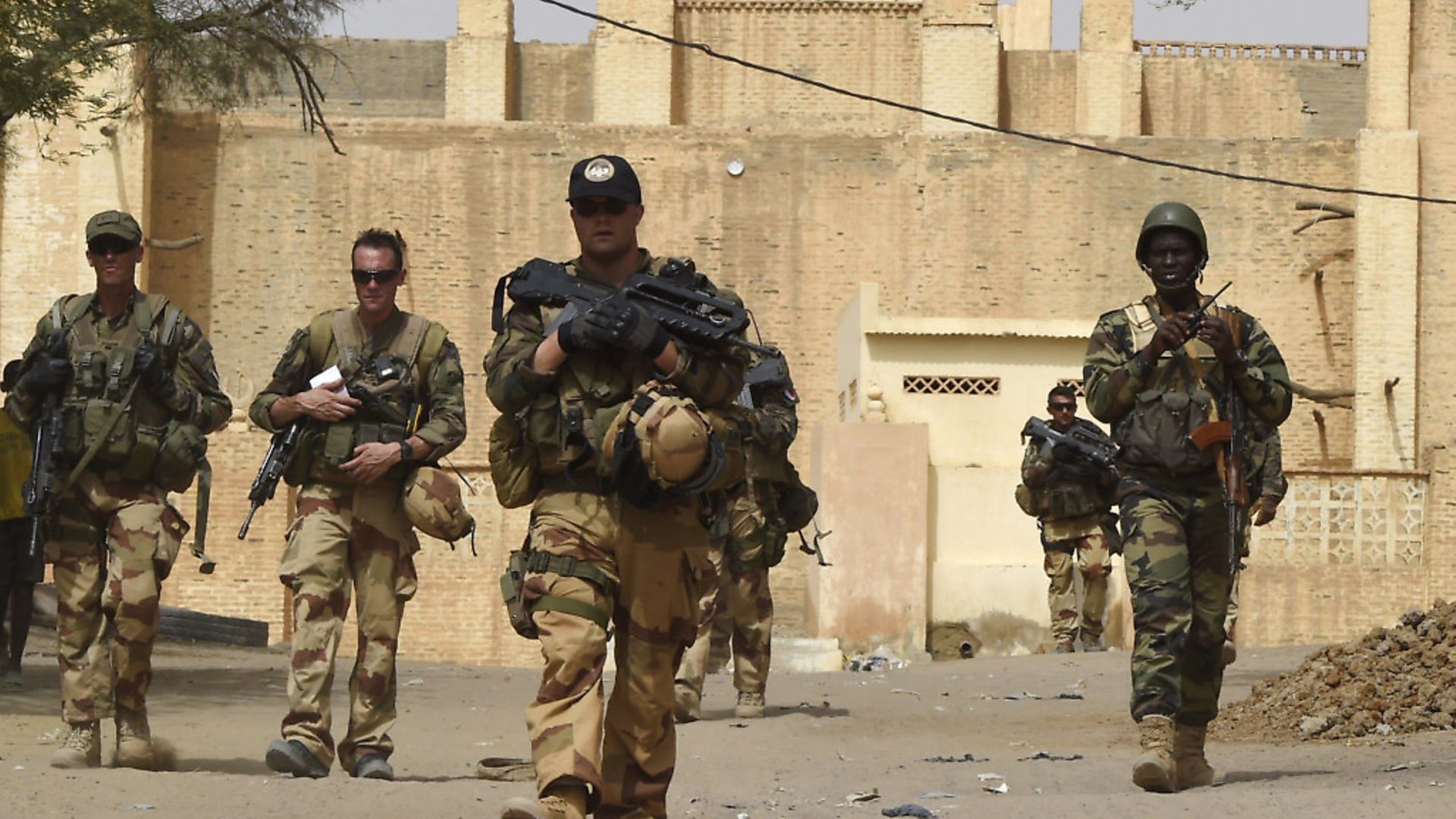
Without the ghosts of the Iraq War haunting France, the country is taking a muscular approach with its military campaign in North Africa. But will it work? PAUL KNOTT reports
Iraq. Afghanistan. Libya. Syria. Yemen. Some recent Western interventions have been too excessive. Others have been timid or non-existent. The problems overwhelming each of these countries, and spreading into Europe, make it hard to claim any of the decisions taken have been just right.
Largely unnoticed in Britain, France is currently conducting a very different counter-terrorism campaign in the Sahel region of Africa. Imperfect and limited in scope though it is, Operation Barkhane may offer a better model for dealing with the extremist threat.
The Sahel is a vast, sparsely populated region between the Sahara Desert and the West African savannah. It covers an area roughly the size of Western Europe and stretches across Burkina Faso, Chad, Mali, Mauritania and Niger. To varying degrees, all these states are poor and badly governed. They struggle to control their sprawling territory, including the long-standing trading and smuggling routes which criss-cross the region.
Several branches of the global jihadist movement took advantage of these circumstances to establish themselves in the Sahel.
Operation Barkhane (it takes its name from the French term for a crescent shaped dune) was launched by then-president François Hollande in 2014 to counter these groups and is being vigorously pursued by his successor Emmanuel Macron. Its objective is to deny the extremists fixed bases. Doing so successfully curtails their ability to profit from arms, drugs and people smuggling. Most of all, it makes it much more difficult for them to recruit, train and launch attacks on both the Sahel nations and Europe.
The French force is designed to be highly flexible and able to launch rapid strikes over the entire region. More than 600 terrorists have been killed or captured so far during the operation. Perhaps more importantly, the groups of which they were part have been scattered and kept on the run.
Simply having a clear and limited objective gives Operation Barkhane an advantage over the shifting goalposts that bedevilled the Afghanistan and Iraq interventions.
As well as bringing direction to the campaign’s actions, having a clear purpose matters in terms of resources too. The endlessly changing aims in Iraq and Afghanistan generated ‘mission creep’ with spiralling troop numbers and wildly expensive budgets.
Barkhane is capped at 4,500 troops and costs 600 million euros per year. According to the Ministry of Defence, Britain alone spent £20.3 billion on the wars in Afghanistan and Iraq.
Twelve French soldiers serving in Operation Barkhane have died since it began in 2014. This compares with the 453 British deaths in 13 years in Afghanistan and 179 in six years in Iraq.
Barkhane’s modest scale and scope enables it to evolve quickly. Increasing emphasis is now being placed on coordinating with local Sahel national forces and training them to take over more of the mission’s activities.
Therein lies one of Operation Barkhane’s main flaws. Its commanders are clear that the modest size of their force means that it cannot achieve outright victory and eliminate the extremist groups completely. Indeed, it was never designed to do so.
This limitation makes identifying an endpoint to the mission difficult.
The risk of building up the capabilities of local security forces is that this may simply make them better equipped to indulge in their previous repressive practices and human rights abuses. Strengthening them could help them to prop up the often corrupt, undemocratic and incompetent regimes they serve. These are the very circumstances and failings that make it easier for extremist groups to attract recruits.
The answers to these challenges lie beyond the scope of Operation Barkhane. The ultimate solutions are not military but political. Ending extremism in the Sahel region requires building stable, just and well-run states. This will enable them to provide freedom and economic opportunities for their people.
International responsibility for improving the quality of governance in the Sahel rests with the substantial civilian UN, EU and other missions providing development assistance to the region. Sadly, a recent policy briefing by the European Council on Foreign Relations (ECFR) finds considerable room for improvement in these programmes and much to be done on what is admittedly a complex, long-term task.
In the meantime, there remains much to commend Operation Barkhane and the brave military people serving in it. Even if it cannot solve the wider problems of the Sahel region, continuing to disrupt the ability of violent extremists to cause carnage there and in Europe is a huge gain. It is also one that is being achieved at a relatively modest cost.
Fortunately, too, it should be possible to maintain the mission at current levels for some time to come. Declining to get involved in the Iraq disaster has left the French with far more leeway to pursue other interventions, such as Barkhane. France is unburdened by the hang-ups and public reluctance stemming from recent failures that hamstring Britain and the US. Its mission in the Sahel is supported across the country’s political spectrum, with the partial exception of far-left leader Jean-Luc Mélenchon.
Often in international affairs, it is necessary to heed Voltaire’s advice ‘to not let the perfect be the enemy of the good’. Operation Barkhane works with the world as it is, rather than trying to turn it upside down in pursuit of utopia. As memories of their other failures become less raw, more Western countries could seek to adopt this restrained but effective approach to overseas interventions in pursuit of their own security interests.









